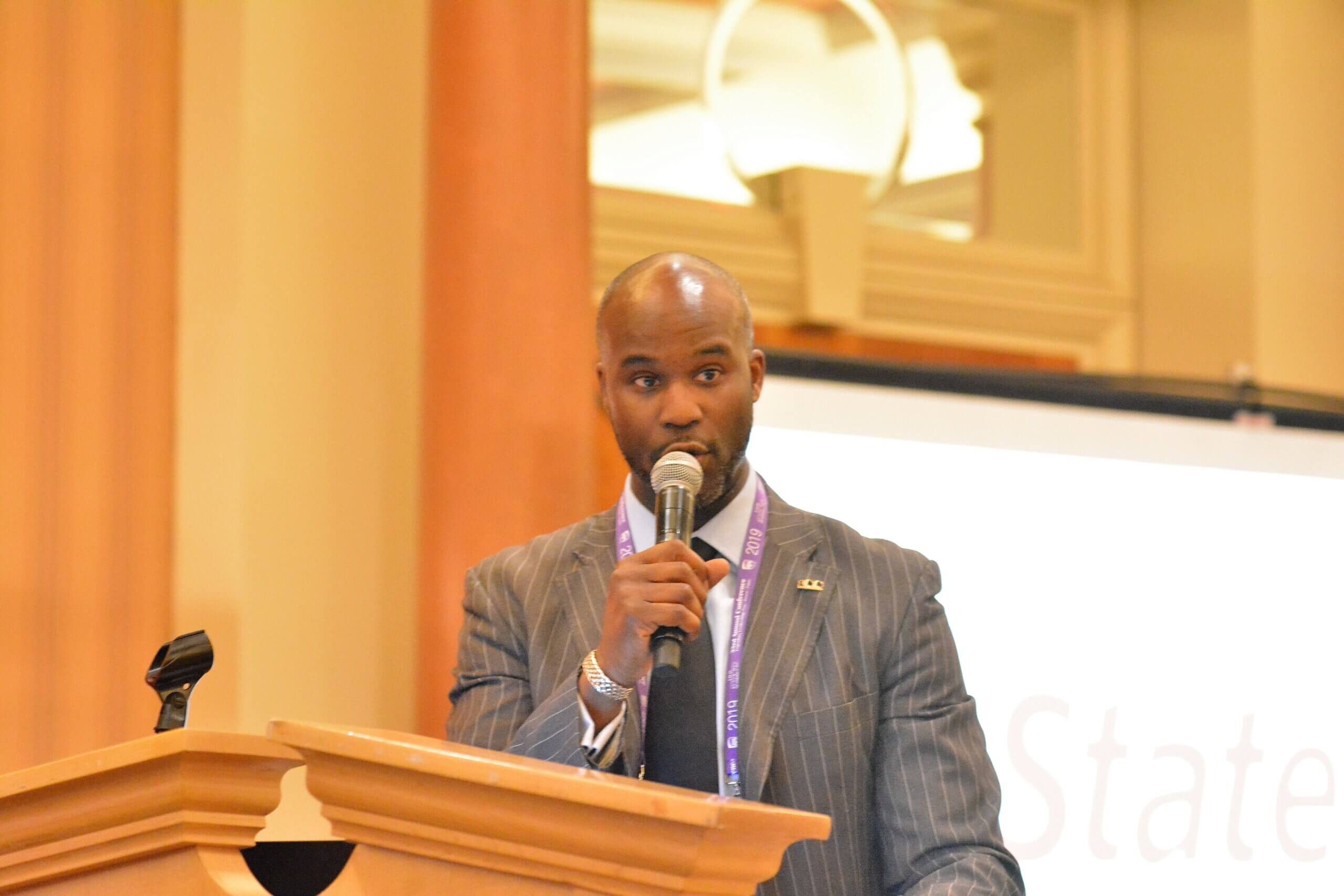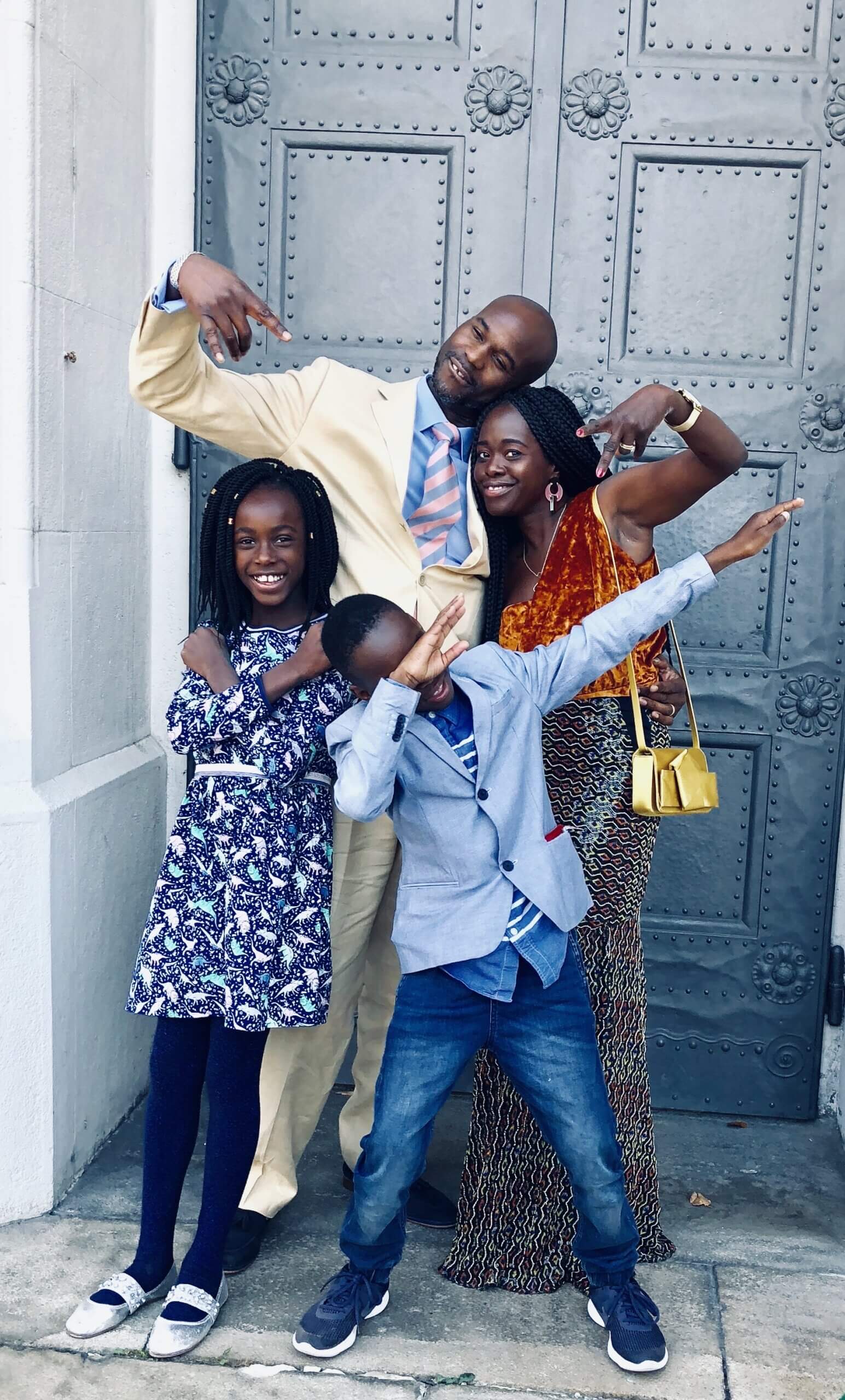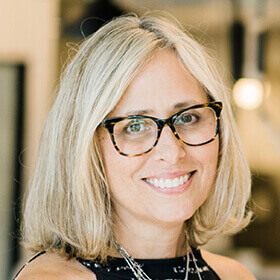Kolarele Sonaike is a man who’s built a career around the power of persuasion. He’s also been a lawyer—a barrister, in Brit-speak—for twenty-two years, representing people and companies in commercial litigation disputes.
“We’re the ones that wear the wig and the gown, and kind of speak in a poncy way.”
By just about any account, Kolarele has had a sustained and successful legal career. But roughly fifteen years ago, one of his friends approached him asking for help with a corporate presentation he was “petrified” about giving.
At first, Kolarele thought it wasn’t a good fit for his skills and experience as a barrister. But after reluctantly agreeing to coach his friend, Kolarele quickly realized he was good at teaching communication skills—and that he liked it, too.
“I really just enjoyed the process of helping.”
A spark had been ignited. As someone who loves to write, Kolarele started an essay that evolved into a book called How to Give a Great Speech.
“And then I just started getting inquiries from people. So I thought, okay, yeah, I can help you. And I just really grew from that.”
Since then, his business, the Great Speech Consultancy, has expanded to include not just individual coaching, but group coaching, corporate training, and online programs.
Communication Is Key, or Why Being Good at Your Job Isn’t Enough
Kolarele’s direct coaching clients are mostly UK based, with some in the US and Nigeria, the land of his heritage. His online clients are from a wider cross-section of the globe, including India, Australia, and the US.
These clients tend to be people who are in mid- to senior-level roles in corporate institutions like investment banks. They’ve usually “spent the first part of their careers focusing on being really good at the job. And then they get to a point, they realize that actually being in the job is only half of it. If I can’t communicate effectively with people, I’m not going to get further.”
He also works with a lot of entrepreneurs attempting to grow their businesses and their profile. “They know that if they can speak better and communicate better, they’ll be able to do that.” So he helps them hone their elevator pitches.
But it goes deeper than that. One of the key ways in which Kolarele helps people become better communicators is overcoming fear of public speaking—something that “pretty much always boils down to confidence level.”
Related to that is imposter syndrome, which Kolarele says is also common.
“That is people worrying and querying: do they deserve to be where they are, or if it’s about going to the next level, do they really have what it takes to get to the next level?”
He’s seen how imposter syndrome plays out in the workplace and holds people back from achieving their goals. “You’re giving a presentation and you worry how you come across. You’re in negotiations and you don’t get the right outcome. You’re in meetings and you can’t answer questions effectively because you’re so worried. And you focus on giving the answer as opposed to giving them confidence in you, which is actually two different things.”
He finds that many people try to sound more confident by mimicking a famous orator like Winston Churchill or Barack Obama. Or they’ll adopt a stiff and formal kind of “corporate speak.” But, as he says, neither of these tactics gets to the root of the issue—finding the confidence to channel their true voice.
“So a big part of it is breaking through that, centering themselves back on who they really are. And once they get there, then actually communication kind of becomes easy.”
Kolarele structures his coaching work to dig up that inner confidence. As he tells potential clients, “Don’t come to me if you want a little tweak here and there. We’re going to go deep and unlock some stuff.”
From a Blog and Email List to TV Star
Word-of-mouth referral was the engine that grew Kolarele’s business from the start, and it continues to be at the center of the flywheel.
But once he started taking his business seriously, he started getting more deliberate with his marketing. That’s when he came across Pat Flynn and SPI and got the guidance he needed to start building a website and email list. As someone who loves writing, he maintains an active blog on his site, as well as a LinkedIn and Twitter presence. He has his own YouTube channel, and he’s made appearances on others’ channels. He also started the Great Speech Podcast in early 2019, and it’s going strong with twenty-five episodes and counting. In 2019, he even had a small part on an Amazon reality TV show called The Updaters.

Kolarele counts several of Pat’s resources as instrumental in his entrepreneurial growth, including the Email Marketing and Affiliate Marketing guides and Pat’s seminal Will It Fly? book. He also loves the How to Start a Podcast guide, and even listed the SPI Podcast number one on a list of resources for entrepreneurs on his website.
Passed Over, Passed By, Misunderstood
On his very first day as a barrister, a senior lawyer pulled Kolarele into a conference room in his chambers and asked him—in all seriousness—if he could help him buy some drugs.
It was an egregiously racist encounter—and hardly the only one of its kind Kolarele has experienced.
Before COVID, when Kolarele was regularly in court representing his clients, he got used to being mistaken for the client rather than the barrister. “It is embarrassing,” he says, that people in his industry commonly assume that the white person he’s representing is the expert and not Kolarele, the accomplished barrister with more than two decades of experience.
On another occasion, he was representing a Black woman in a discrimination case, in which the woman’s employers complained about how she seemed to be “always angry.” Kolarele pointed out that the stereotype of the angry Black woman is one with “real racial, historical underpinnings.” But the judge refused to believe him.
“He shouted at me because he said I was talking total nonsense. And his basis for that was, ‘I played basketball with some Black friends and they’ve never said this to me.’”
Kolarele asked the judge if they could adjourn, then invited him to google “angry Black woman.” A few minutes later, the judge came back, flustered. He said to Kolarele that his eyes had been opened—thanks to an article at the top of search results about Michelle Obama and the “angry” label she has carried since being in the public’s eye.
The real issue is that sense that you have, but you can’t necessarily point to it or you can’t challenge it, that you just are locked out of opportunities.
Kolarele Sonaike
Or take the time at a party when Kolarele got into a conversation about the discrimination he experienced trying to hail a cab in London, where taxi drivers would often simply refuse to stop for him. When he’d go out with a mixed-race group of friends, the white friends would hail the cab while the Black friends sat back and jumped in once it had stopped.
He told his conversation partner, a white woman, that he preferred using Uber because he didn’t have that experience. “I know I’m not going to be passed by,” he said.
The woman got upset and told Kolarele he was lying.
“I’m like, ‘No, I’m not lying. I’m just saying that’s actually the reality.’”
Along with these overt instances, Kolarele points out how racism affects Black folks—and entrepreneurs in particular—in more insidious ways.
“The real issue is that sense that you have, but you can’t necessarily point to it or you can’t challenge it, that you just are locked out of opportunities that you can see others with maybe as much, or maybe less ability or experience or offerings, get the opportunity for. And it kind of permeates.”
He’s observed how he’s often overlooked for his communication work despite his immense skills, credentials, and experience.
“I mean, I work my a– off at it. I study it from being a barrister for twenty years. I’ve taken all of that. I’ve crafted my approach to it. And yet you will see colleagues or people, friends, whatever, when people look to hire a coach or someone to come in and do something, they’ll gravitate towards those people—even having put my profile side-by-side with theirs and they say, ‘Oh yeah, we’ll take this guy.’”
“And it’s just that sense of, Ugh, man…”
He’s also seen how his wife, Eva, who owns a high-end home goods brand called Eva Sonaike that creates furnishings made from African fabrics, has been passed over for exposure opportunities that have gone to White brand owners with inferior products.
“Her brand is just amazing—but she has to push and push.”
Making the Economic Case for Diversity
In addition to the Great Speech Consultancy, Kolarele also consults for companies and organizations on issues of diversity and inclusion. When his consulting clients ask him how to create a more welcoming and inclusive environment, he often answers in a surprising way.
“I primarily comment from almost an entirely economic angle, which is: Diversity is economically good for you.”
In his experience, many organizations limit the pool of executive talent or the range of potential consumers of their products—a blind spot and missed opportunity. He helps these companies understand that by being more inclusive about who they hire and market to, they can unlock latent economic advantages. Simply making their business more welcoming to Black consumers by hiring more Black employees can be a smart bottom-line move.
He’ll often tell these companies’ leaders, “Your ability to succeed is being directly hampered from your own efforts, because you’re missing out on a huge swath of people who are just as talented, perhaps even more talented or hungrier definitely, and more coachable, more adaptable, because that’s the life they’ve had to lead.”
“So open yourself to that because it’s going to help you economically.”
Listen to Pat’s interview with Kolarele in session 471 of the SPI Podcast:
Entrepreneurs, Want to Be Antiracist? Expand Your Circles
Kolarele believes it’s not just larger companies and organizations that can benefit from taking a more inclusive approach. He encourages smaller business owners, especially white entrepreneurs, to look seriously at who’s in their “circle” and consider expanding it.
As Kolarele points out, it’s one thing to be an out-and-out racist—and thankfully, the large majority of folks are not—but that’s not where white entrepreneurs need to do the work.
“Nobody generally tries to be racist or tries to exclude. But when you find that you generally are just speaking with and engaging with a circle, that circle becomes kind of self-reinforcing.”
He encourages these entrepreneurs to “reexamine every stage of your work pipeline, as it were. And just say, ‘Okay, what could we be more open to?’”
Whether it’s hiring a contractor to help with graphic design, or considering the stock images you’re using in your marketing materials, “at every level, think more about what you’re doing.”
That theme—of expanding your network—is one Kolarele explored in a webinar conversation with the UK Federation of Small Businesses titled “Diversity and Inclusion – how should small businesses respond to the Black Lives Matters campaign” in July 2020.
He also wants people to understand this work as much more than just a trend to latch onto. “Really the biggest thing for me is when the cameras are gone, right? When the next big news item takes everybody’s focus—that’s when to dig in.”
How Lockdown Freed Things Up
As COVID took hold, courts closed, and clients shut their offices, Kolarele saw his legal work almost completely dry up—a drop on the order of “90 percent.”
Thankfully, this gave him the chance to focus on the entrepreneurial side of things. While he was initially worried when he saw his legal workload shrink, that concern “has been offset by what it’s meant for the other side of my life.”
“COVID and lockdown has given me the first opportunity to really scale [the business], and really put everything into it.”

He’s taken on more one-on-one coaching clients, and he’s started building a group coaching program.
Another benefit has been more “thinking time.” He’s taking more walks, which he loves because they’re a big source of inspiration. “By the time I come back, I’ve got a great idea.”
He’s even found the time to start ghostwriting a book.
“It’s given me the opportunity to push forward on an area that is really my passion, in terms of the communication skills work, but also do it in a more strategic way, more creative.”
Two Kinds of Intensity
“I’ve been in the legal game for a good twenty-odd years now, which has given me a great grounding for my communication skills business,” Kolarele says.
The natural trajectory of his legal career has been leading him to eventually become a Queen’s Counsel (QC), and perhaps one day a judge. But that path is not where Kolarele’s heart or ambition is pointing him.
“Everyone’s saying you should go and do it. And I just decided I didn’t want to go down that road. Primarily because I enjoy the variety that comes with being both a lawyer and a communication skills coach.”
He enjoys his legal work, although the intensity can be grueling. Getting ready for a legal case is “hours and hours of preparation,” which has often found Kolarele up until two or three in the morning.
“Come on, you can’t do this. It’s not sustainable,” his wife has said to him on more than one occasion.
The coaching side of things, on the other hand? “It’s a different kind of intensity. Once you’ve created your system and your approach to it, it’s the intensity of the moment of coaching, but it’s less intense outside of that.”
He’d be fine doing a number of substantial legal cases a year, and taking on more work coaching with corporations “who want to take their employees to the next level in their careers and know that communication skills are needed for that.” And although he’s an accomplished speaker in the UK, he also wants to become even more sought after for his speaking work globally.
Not being tied to the region where he works as a lawyer would also create even more lifestyle freedom for Kolarele and his family.
“Even if we stay in London […] I can say, yeah, we’re going away for a couple of weeks or a couple of months or whatever it is because I can work from anywhere.”
About Kolarele
Kolarele Sonaike is a practicing barrister and the owner of the Great Speech Consultancy. He’s also the author of How to Give a Great Speech, as well as a kids’ book, The Bird That Had Vertigo. He has been a mentor, board member, and president of 100 Black Men of London, and he currently serves on the board of the 100 Black Men of America. He also wrote a script for a movie called Wingman—sadly never made—that would have been the British Swingers. He lives in London, UK, with his wife, Eva, and their two kids.
 Karen Beattie
Karen Beattie


